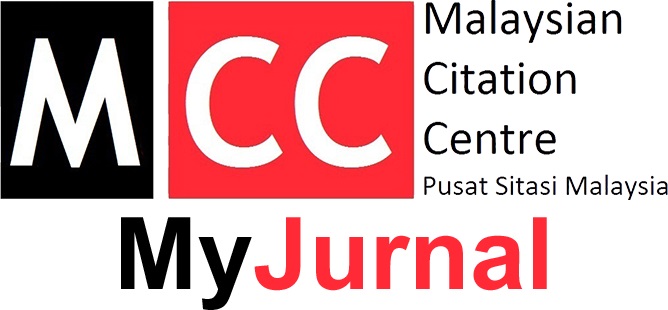PERMANENT DEFORMATION INVESTIGATION OF RUBBER POLYMER MODIFIED BINDER IN SUPERPAVE HOT MIX ASPHALT MIXTURE
Keywords:
Rubber Polymer, Resilient Modulus, stripping, Moisture Susceptibility, Tensile StrengthAbstract
Moisture susceptibiltiy is one of the common types of pavement failure found in asphaltic pavements. Climatic factor such as temperature and moisture has a profound effect on the durability of hot mix asphalt pavements. Couple with high traffic loads/stresses made stripping of pavement materials inevitable. Thus, it has become necessary to improve the efficiency of the design of hot mix asphalt (HMA) for better performance and safe riding comfort. This study investigates and discusses the findings on the stripping performance of dense graded Superpave mixes using two type of binder; un-modified binder and rubber polymer modified binder (RPM) using Superpave mix design (AASHTO TP4) procedure. The RPM binder consists of 4% of both rubber crumb and EVA polymer. Modified Lottman and Resilient Modulus tests were used to evaluate the stripping performance in these mixtures and this study also documents the effect of different temperature on tensile strength ratio (TSR) and resilient modulus ratio (RMR) on the HMA mixtures. Experimental evidences show that the RPM binder mixes were found to have significantly improved the resistance to moisture damage compared to unmodified binder mixtures. The RPM binder application may able to alleviate problems related to aggregate stripping and potholes on our road. Statistical analysis showed good correlation between resilient modulus and tensile strength ratio.
References
AASHTO. (2008). Resistance of compacted Hot Mix Asphalt (HMA) to Mixture-Induced Damage. AASHTO T283-07.
Abdul Hassan, N., Abdulhussein Abdulridha Almusawi, A., Zul Hanif Mahmud, M., Asniza Mohamed Abdullah, N., Athma Mohd Shukry, N., Mashros, N., … Md Yusoff, N. I. (2019). Engineering properties of crumb rubber modified dense-graded asphalt mixtures using dry process. IOP Conference Series: Earth and Environmental Science, 220(1). https://doi.org/10.1088/1755-1315/220/1/012009
Al-maamori, M. H., & Hussen, M. M. (2014). Use of Crumb Rubber As a Way To Improve Performance Grade for Asphalt Cement. Academic Research International, 5(1), 66–78.
Alvarez, A. E., Martin, A. E., & Estakhri, C. (2011). A review of mix design and evaluation research for permeable friction course mixtures. Construction and Building Materials, 25(3), 1159–1166. https://doi.org/10.1016/j.conbuildmat.2010.09.038
Awad, A. (2019). Utilizing of Polyethylene and Plastic Wastes for Paving Asphalt Modification, 11(1), 491–498. https://doi.org/10.24941/ijcr.34027.01.2019
Behiry, A. E. A. E.-M. (2013). Laboratory evaluation of resistance to moisture damage in asphalt mixtures. Ain Shams Engineering Journal, 4(3), 351–363. https://doi.org/10.1016/j.asej.2012.10.009
Brovelli, C., Hilliou, L., Hemar, Y., Pais, J., Pereira, P., & Crispino, M. (2013). Rheological characteristics of EVA modified bitumen and their correlations with bitumen concrete properties. Construction and Building Materials, 48, 1202–1208. https://doi.org/10.1016/j.conbuildmat.2013.07.032
Kakar, M. R., Hamzah, M. O., & Valentin, J. (2015). A review on moisture damages of hot and warm mix asphalt and related investigations. Journal of Cleaner Production, 99, 39–58. https://doi.org/10.1016/j.jclepro.2015.03.028
Kamil Arshad, A., Awang, H., Shaffie, E., Hashim, W., & Abd Rahman, Z. (2018). Performance Evaluation of Hot Mix Asphalt with Different Proportions of RAP Content. In E3S Web of Conferences (Vol. 34). https://doi.org/10.1051/e3sconf/20183401026
Mohammad Amin Ganjei & Esmail Aflaki. (2019). Application of nano-silica and styrene-butadiene-styrene to improve asphalt mixture self healing. International Journal of Pavement Engineering, 20(1).
Shaffie, E., Ahmad, J., Arshad, A. K., & Kamarun, D. (2004). Moisture Induced Damage Evaluation of Nanopolymer Modified Binder in Stone Mastic Asphalt ( SMA ) Mixtures. Springer Journal, 0–5.
Shaffie, E., Arshad, A. K., Ahmad, J., & Hashim, W. (2018). Evaluation of moisture-induced damage of dense graded and gap graded asphalt mixture with nanopolymer modified binder. IOP Conference Series: Earth and Environmental Science, 140(1). https://doi.org/10.1088/1755-1315/140/1/012143
Downloads
Published
Issue
Section
License
Copyright (c) 2020 Journal of Academia

This work is licensed under a Creative Commons Attribution-NonCommercial-NoDerivatives 4.0 International License.












